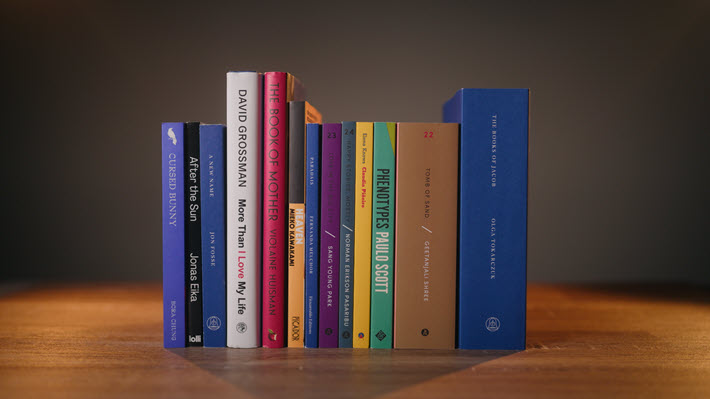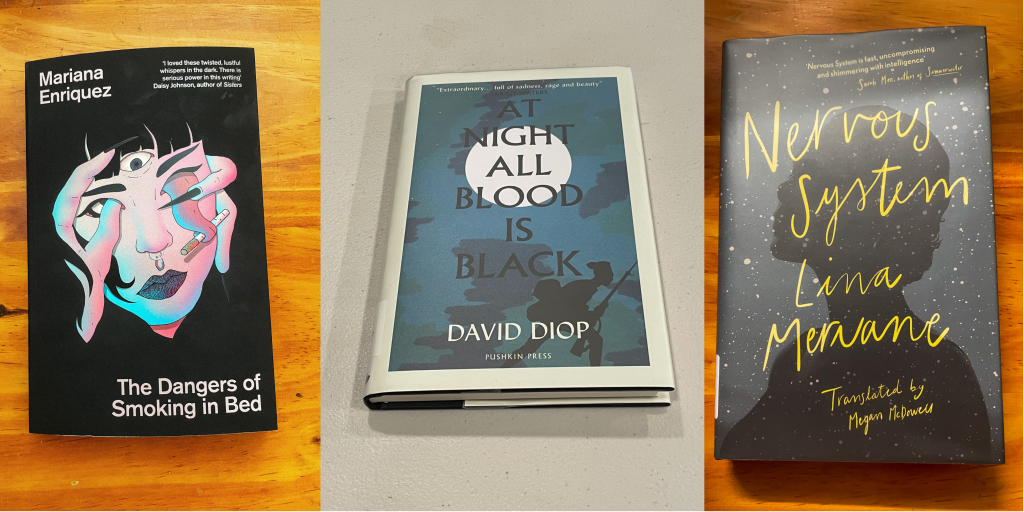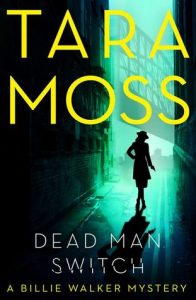 Wanted to do something different, and this is inspired by a note I found in my Notes app regarding my wife from 2014. I am not going to share this note as it is too personal but recently I saw a TikTok trend asking what type of notes do men have on their phone, so it sparked this post. I want to post a few I found and try to see if I can explain them. While looking I have deleted so many notes because I have no idea what they mean.
Wanted to do something different, and this is inspired by a note I found in my Notes app regarding my wife from 2014. I am not going to share this note as it is too personal but recently I saw a TikTok trend asking what type of notes do men have on their phone, so it sparked this post. I want to post a few I found and try to see if I can explain them. While looking I have deleted so many notes because I have no idea what they mean.
Megan McDowell
Emma Ramadan
Sophie Hughes
Tina Kover
Hugh Alpin
Natasha Wimmer
Donald Nicolson-Smith
Frank Wynne
Oliver Ready
Deborah Smith
This one is pretty simple, I was working on a list of auto-buy translators. I always see people talk about auto-buy authors and I thought that was too boring, so I wanted to adjust it to suit my needs. I seem to have found five translators that are auto-buys and was brainstorming who else to add before maybe creating a post about this topic. I did also find an auto-buy authors list, but it only contained Mariana Enríquez and Anne Garréta.
conflictatus per aliis libris
Do I need to explain this note? It seems to be my life motto; it is Latin for distracted by other books. I wish I was better at planning my reading habits, I would like to be able to schedule some reading goals, but sadly I know I am a mood reader and am constantly being distracted by other books.
Descriptions of breasts
Love Triangles
First Person Past Tense in Post-Apocalyptic
Like (comparisons)
Repetitive
I assume this was a list of turn offs in literature, maybe I was planning to write a post about literary bête noires. I have no idea about the first person past tense in a post-apocalyptic one, but it does sound awful, I just cannot think of a single example of when this has happened and why I would put it on this list.
Book adaptations
Norwegian Wood
Belle De Jour
My Brilliant Friend (TV show)
Let The Right One In
Zama
It feels rare to find a note with a title, but I am not sure where I was going with this one. Is it possibly a list of book adaptations worth watching?
#bookhipster
-
- You don’t want an ereader because you want other people to know what you’re reading
You see these people pretending to read paper books all the time. But really they’re glancing around the room, to see who’s noticing them.
- You like to take instagram photos of your food…with your book casually in the background of the shot
Actually, I did this the other day.
- You now appreciate the works Stephen King produced in the 80s (but everything he wrote in the 90s was terrible)
“The Shining is a brilliant interpretation of the American ghost story but Rose Madder was meaningless twaddle.”
- You are purposefully rough with your books when you read them so that it looks like you’ve read them several times more than you actually have.
Not only have I read all the books I own, I’ve read them all at least seven times.
- You think you’re Hemingway
You’re not.
- You have personalised book plates that say “from the library of (insert name)”
You do not have a library. You have a bookshelf.
- You have a book bag
Normal people call them ‘bags’.
- You like to hang out in independent book stores, but secretly shop on Amazon.
You probably make purchases on your phone while you’re in there.
- You snort derisively at any book that’s popular without having read it
*cough* 50 Shades of Grey *cough*
- Unlike music hipsters, you need authors to be verified by a major label before you’ll read them.
Hipsters only like authors that you’ve never heard of…who are published by a major publishing house and who are preferably award winners.
I really have no idea. It doesn’t look like I wrote it but past me did not include a source.
Guilty reads?
How are books a guilty pleasure
Are there books that you are ashamed of some books you read
Don’t want to be judged on what you are reading
Sometimes that are a joy in reading for simply enjoyment
Books you’re afraid to read in public
Sounds like I was brainstorming new ideas for blog posts, this was written in 2012 but they might actually be good ideas.
Because I teach literature at the university level, there is, in fact, no way to avoid commenting on books that most of the time I haven’t even opened. It’s true that this is also the case for the majority of my students, but if even one of them have read the text I’m discussing, there is a risk that at any moment my class will be disrupted and I will find myself humiliated.
Obviously not written by me but I like the quote. I googled it and found out that it is from How to Talk About Books You Haven’t Read by Pierre Bayard, translated from the French by Jeffrey Mehlman. Yet another time, I wish past me would have referenced his notes.
Чтобы больше иметь больше производств
Чтобы больше производить надо больше знать
Not sure where this comes from because I clearly do not reference my notes, but it is Russian and it says “To have more, produce more. To produce more you need to know more” I am not sure what I was planning here, it was either a revolution or I just like to collect quotes about gaining knowledge.
1788–year of white settlement, rise of novel, encyclopedia, first dictionaries, newspapers
Yet again, I have no idea what was going on here. I must have thought it was useful to know this information. I know 1788 was when the First Fleet arrives at Botany Bay, so I do understand the year of white settlement part of this, but did all the other things really happen in 1788?
I think this is enjoy of a dive into my Notes app, there is a long description of the Norman conquest of England in 1066 and plenty of random book lists, including the World Literature Today’s 75 Notable Translations of 2020 (thankfully I referenced that one) and the past few longlists for the International Booker Prize, so I can mark off the books I have read. That is an insight into my thought process, I am assuming that most of these were written in the middle of the night because I do not appreciate having no references or titles. Let me know what weird notes are in your Notes app.


 Title: Who Gets to Be Smart (
Title: Who Gets to Be Smart ( This year
This year  Wanted to do something different, and this is inspired by a note I found in my Notes app regarding my wife from 2014. I am not going to share this note as it is too personal but recently I saw a TikTok trend asking what type of notes do men have on their phone, so it sparked this post. I want to post a few I found and try to see if I can explain them. While looking I have deleted so many notes because I have no idea what they mean.
Wanted to do something different, and this is inspired by a note I found in my Notes app regarding my wife from 2014. I am not going to share this note as it is too personal but recently I saw a TikTok trend asking what type of notes do men have on their phone, so it sparked this post. I want to post a few I found and try to see if I can explain them. While looking I have deleted so many notes because I have no idea what they mean. November is National Novel Writing Month, or
November is National Novel Writing Month, or 







 Title: Dead Man Switch (
Title: Dead Man Switch (